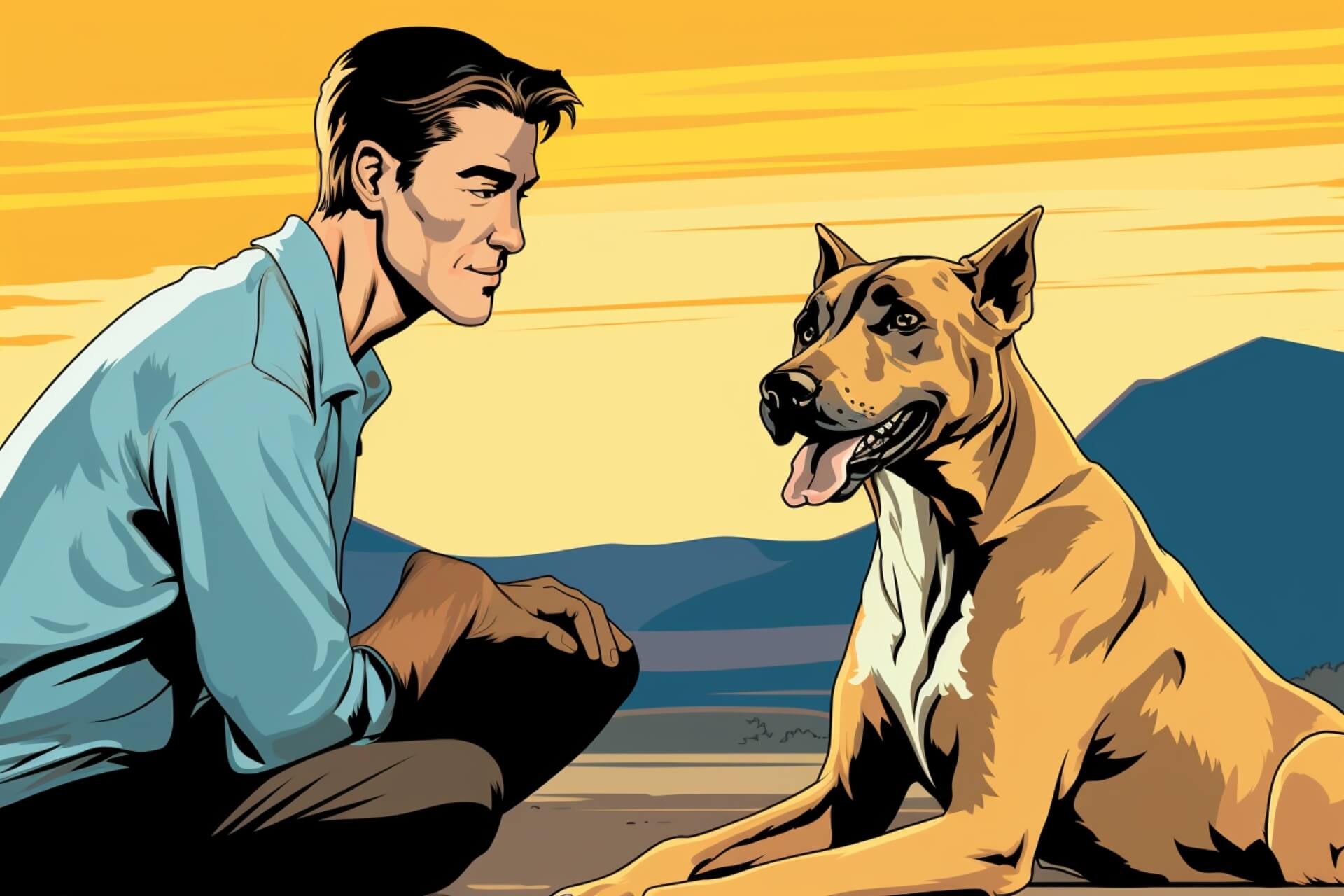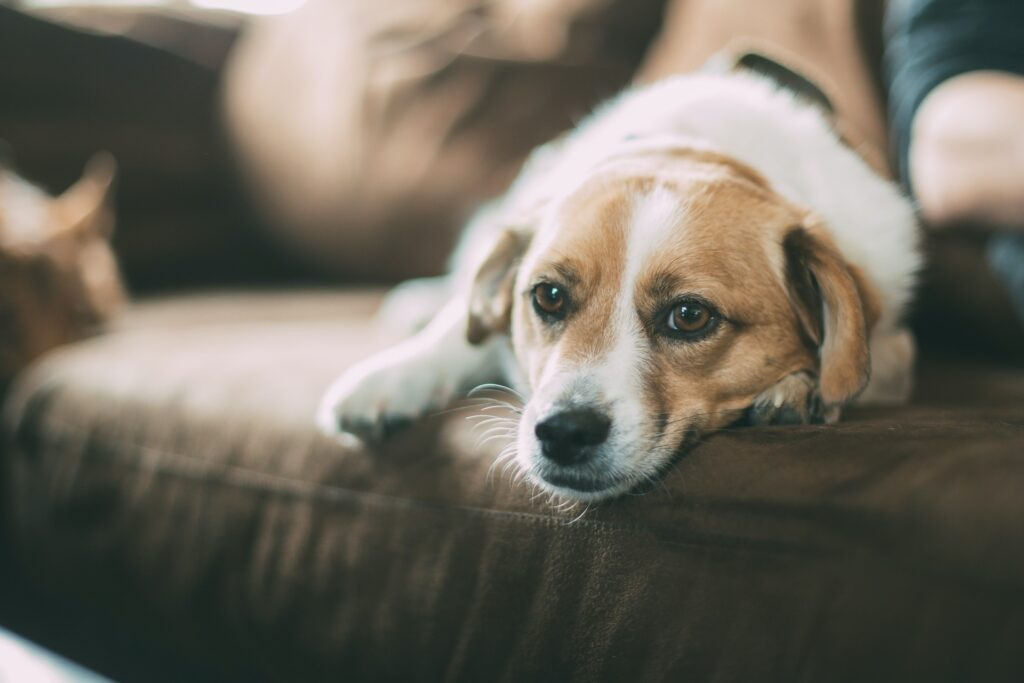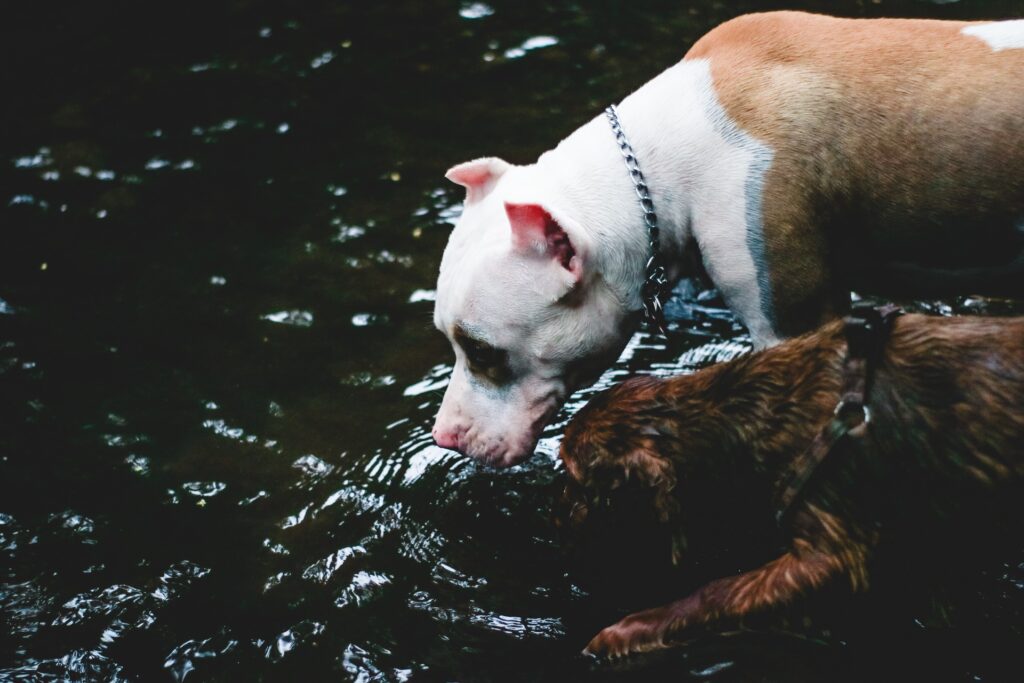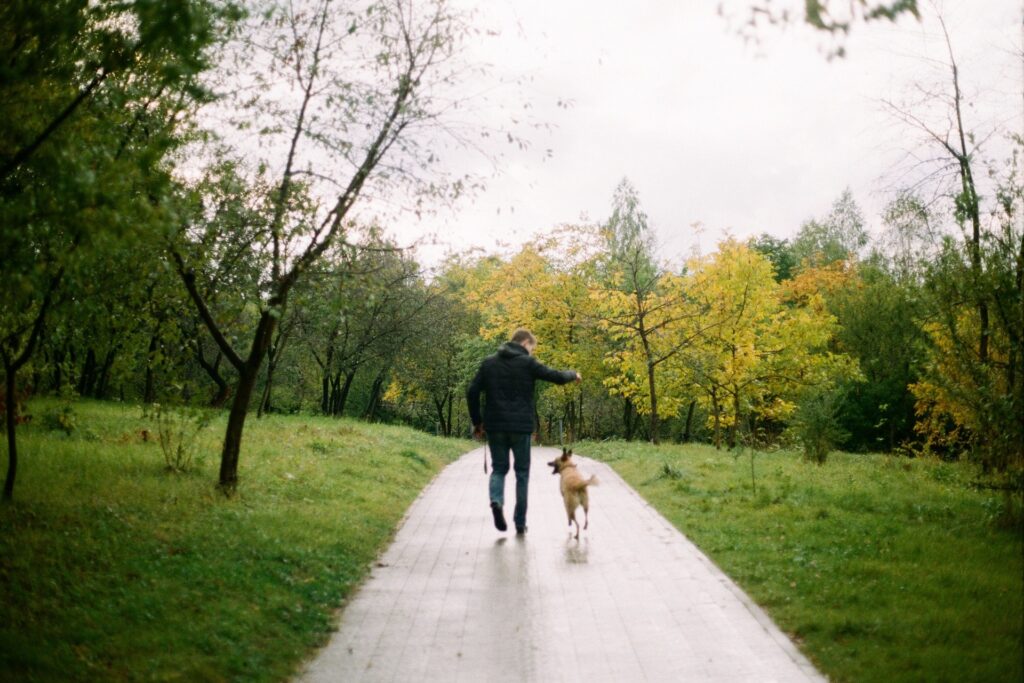
As an Amazon Associate, Modded gets commissions for purchases made through links in this post.
Everyone knows dogs are man’s best friend — they’re loyal, affectionate, protective and enrich our lives in endless ways. That’s why, as a dog owner, you want to take the best care of your furry friend as possible. Panting is a normal behavior in dogs, but too much panting can be a sign that something is wrong. Learn more about how to calm a panting dog in this guide.
Is My Dog Panting Too Much?
Panting is a common and even healthy behavior in most dogs. Since dogs don’t sweat like humans do, they have alternative cooling mechanisms. Moderate or rapid breathing with an open mouth helps bring the dog’s body temperature down, allows moisture to evaporate off the dog’s tongue and puts more oxygen into the bloodstream.
Dogs typically pant when they’re hot or after exercise. However, if the panting is heavy, constant or your dog is also showing other signs of pain, it may be a symptom of more serious problems.
Why Dogs Might Be Panting Excessively
There are many reasons your dog might be panting too much.
Heatstroke
Excessive heat is one of the most common culprits of heavy panting in dogs. Whether it’s caused by hot weather or intense exercise, heatstroke occurs when a dog gets too hot and can’t regulate its temperature. They will try to cool down by panting deeply, but more serious action is necessary to help lower their temperature.
Fever or Other Sickness
If your dog gets sick, they might develop a fever that raises their body temperature. They’ll try panting to lower their temperature, but a fever will require a visit to the vet to determine the cause and get treatment.
Allergic Reaction
Some dogs may have a negative reaction to pollen, certain foods or medications. If a dog has an allergic reaction, they will often pant in an attempt to cool down. Much like a fever, allergic reactions require medical attention to ensure your dog’s health and safety.
Physical Pain
An injury can also cause heavy panting in dogs. Since panting is a cooling mechanism and often a reaction to stress, your dog might pant to try relieving their pain. Be careful when trying to address injury-induced panting to ensure you don’t further harm your dog.
Stress and Anxiety
Do you get hot and sweaty when you’re stressed out? When a dog feels stressed or anxious, their body temperature rises as well. They’ll pant while trying to calm themselves down. However, you may need to step in to help them relax.

How to Calm a Panting Dog Right Away
If your dog is panting too much and you want to calm them down, the first step is to identify why they are panting. How you respond will depend on the cause. If they’re sick or injured, they’ll need veterinary attention and professional care. However, the most common causes are overheating or stress. You can probably address these issues yourself at home.
Provide Water
Whether your dog’s excessive panting is a symptom of heatstroke, stress or dehydration, drinking water can help relieve their stress. Make sure your dog has plenty of access to cool water. If your dog likes to eat ice cubes, you can offer some of those too.
If your dog won’t drink enough water, you can lightly wet its coat with cool water to help bring its body temperature down. You should seek professional care if your dog continues panting or still won’t drink water.

Move Your Dog to a Cool Place
A calm, cool environment is necessary to relax your dog and keep them calm if they’re panting too much. If they’re outside in hot temperatures, bring them indoors. Make sure the AC is on or they’re sitting near a fan. Moving your dog to a more comfortable environment can make a big difference.
Help Your Dog Relax
You know your dog best, which means you know how to calm them down. Dogs often relax when they’re near their owners, so sit close to your furry friend and let your presence reassure them. If they enjoy being pet, you can give them gentle pats or a light massage to help them remain calm. However, if they have an injury, be sure you don’t touch the sensitive area.
Try to keep your own stress in check when dealing with your dog. If you’re anxious, they’ll sense it — and it will only heighten their own stress.
Use an Anti-Anxiety Wrap
You may be wondering, “Why does my dog pant and shake when riding in the car?” Many things can cause anxiety in pets, such as unfamiliar people or animals, being alone, traveling in a car or on a plane, thunderstorms, loud noises and overwhelming stimuli. Fortunately, there are ways dog owners can help relieve that stress, like wraps.
Anti-anxiety wraps are vests or shirt-like garments for dogs that apply gentle pressure to the animal, helping them feel safe and secure. If your dog is panting due to stress, a wrap’s calming presence could ease their anxiety.
Go for a Short Walk
Sometimes a dog is panting because they are overwhelmed with their current environment. For example, too much sensory stimulation can leave an animal frazzled and panting heavily. If your dog isn’t sick or injured, consider taking them on a short walk. The change of scenery will distract them from whatever was causing the stress.

Consider Anti-Anxiety Supplements
If your dog suffers from regular anxiety that results in excessive panting, consider managing their stress with a calming supplement. There is an increasing number of vet-approved products on the market, including treats that contain melatonin or L-theanine. Talk to your veterinarian before exploring supplements for your dog.
Visit the Vet’s Office
If you can’t calm your panting dog on your own, they regularly struggle with heavy breathing or you aren’t sure what the cause is, it’s time to make a trip to the veterinarian. Your vet will provide insight into your dog’s condition and recommend treatments or solutions to ease their panting.
Calming Your Panting Dog
If you’re interested in how to calm a panting dog, you should first identify the cause of their heavy breathing. Once you know the why, you can address the issue and help your dog live a healthier and happier life.
Stay up to date with the latest by subscribing to Modded Minute.
Author
Jack Shaw is a senior writer at Modded. Jack is an avid enthusiast for keeping up with personal health and enjoying nature. He has over five years of experience writing in the men's lifestyle niche, and has written extensively on topics of fitness, exploring the outdoors and men's interests. His writings have been featured in SportsEd TV, Love Inc., and Offroad Xtreme among many more publications.





